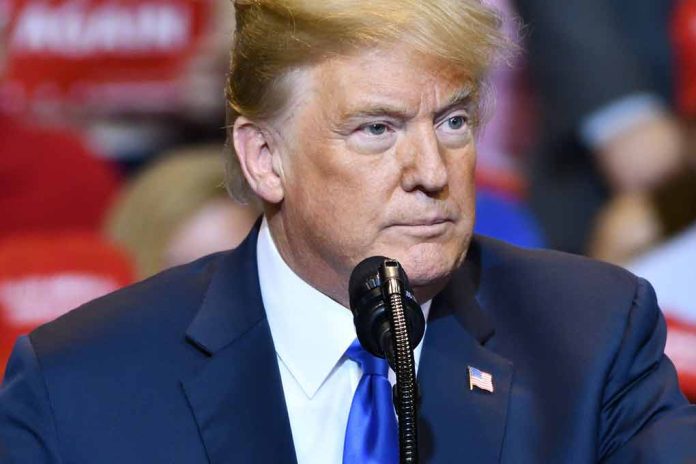
President Trump’s removal of NSA Director General Timothy Haugh has sparked controversy among national security experts, raising questions about America’s cybersecurity readiness amid evolving threats.
Key Takeaways
- President Trump fired NSA Director Gen. Timothy Haugh and reassigned Deputy Director Wendy Noble, creating immediate leadership gaps in two critical security agencies.
- General Haugh, a 30-year military veteran, also commanded U.S. Cyber Command and had played a significant role in countering Russian election interference.
- Conservative activist Laura Loomer claimed credit for the dismissals, calling the career officials “Biden holdovers” despite their service across multiple administrations.
- Top Democrats on intelligence committees expressed serious concerns about national security implications, describing the firings as “unprecedented.”
- The dismissals follow reports of a broader pattern of removing career officials from national security positions in the Trump administration.
Sudden Dismissal Creates Leadership Vacuum
General Timothy Haugh, who served as both NSA Director and commander of U.S. Cyber Command was abruptly dismissed along with NSA Deputy Director Wendy Noble. The Washington Post first reported the firings, which have since been confirmed by multiple news outlets. Noble has been reassigned to the office of the undersecretary of defense for intelligence, while no immediate replacement for Haugh has been announced. Both officials were career professionals with decades of service spanning multiple administrations from both parties.
The dismissals have created immediate leadership vacancies at two of America’s most critical security agencies responsible for cyber defense, signals intelligence, and offensive cyber operations. Haugh, who had a military career spanning over three decades, was particularly noted for his expertise in cyber and intelligence operations, including efforts to counter foreign cyber threats during previous election cycles.
Gen. Tim Haugh, the chief of the National Security Agency, was fired at the direction of the White House, according to people familiar with the matter https://t.co/vgG9hKxYcb
— The Wall Street Journal (@WSJ) April 4, 2025
Political Controversy Surrounds Firings
The terminations have prompted strong reactions from lawmakers on intelligence committees. Representative Jim Himes, the top Democrat on the House Intelligence Committee, demanded immediate explanation for the dismissal of Haugh, whom he described as an honest leader who prioritized national security. Senator Mark Warner, chairman of the Senate Intelligence Committee, called the firing “astonishing” and questioned how it would impact America’s security posture amid growing cyber threats from adversaries.
Conservative activist Laura Loomer has publicly claimed credit for the removals, citing alleged disloyalty to President Trump. “NSA Director Tim Haugh and his deputy Wendy Noble have been disloyal to President Trump, That is why they have been fired,” said Loomer. However, the White House National Security Council has not officially commented on the matter, and President Trump has denied Loomer’s involvement in these specific personnel decisions despite reports of her meeting with the president shortly before several national security officials were removed.
Impact on National Security Operations
Larry Pfeiffer, a former senior intelligence official, described the dismissals as “unprecedented” in the intelligence community. The timing of the firings has raised particular concern as the United States continues to face sophisticated cyber threats, including the recent Salt Typhoon cyberattack attributed to China. Senator Warner specifically referenced this context in his criticism of the decision, questioning how removing experienced leadership would enhance American security.
Reports have also noted that the firings follow a visit by Elon Musk to NSA headquarters, after which he commented that the agency needed an overhaul. Additionally, NBC News reported that President Trump recently dismissed three National Security Council officials following a meeting with Loomer, suggesting a broader pattern of personnel changes within national security institutions. These developments reflect ongoing tensions between career officials and outside advisors seeking to reshape America’s security apparatus.
Sources:
National Security Agency Director Gen. Haugh fired, civilian deputy director reassigned
National Security Agency chief and deputy director dismissed
Trump Fires General Timothy Haugh, Head of the National Security Agency and US Cyber Command







